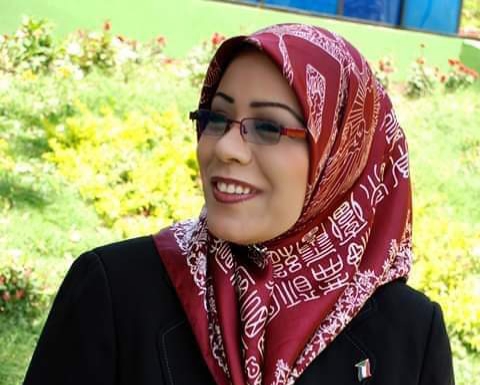
By Dr. Enas Mohamed Ahmed
Secure borders are a blessing understood only by those deprived of them. Whether it is neighbors among individuals or nations, the concept remains essential. For individuals, relocating or moving away from a harmful neighbor is possible; however, for nations, such distancing is far more challenging. How can a country distance itself from a harmful neighboring state?
Due to its significance, the principle of good neighborliness has been valued worldwide since ancient times, recognized as a necessity for peace among countries and human societies. Initially customary, the principle of good neighborliness has since evolved into a binding international standard through consistent application.
The United Nations Charter of 1945 enshrined the principle of good neighborliness, encouraging cooperation and coordination among states for stable and secure borders. This is particularly crucial for nations with shared histories, cultures, traditions, beliefs, and common destinies, as well as intertwined tribal affiliations and mutual interests. Violating this principle strains inter-state relations and imposes obligations on the violating state to cease harmful activities immediately, repair and compensate for the damages suffered by the affected state, and provide relief to victims.
Sudan has rigorously upheld the principle of good neighborliness with all its neighboring countries, rooted in its historical, civilizational, humanitarian, and ethical heritage. This principle forms a cornerstone of Sudan’s foreign policy and its relations with neighboring and global nations. Sudan’s adherence is grounded in a deeply held belief that comprehensive global security can only be achieved through international relations based on good neighborliness, mutual respect, and non-interference in the internal affairs of other states. However, Chad has breached these principles by disregarding the historical, tribal, and familial ties between itself and Sudan. This prompted Sudan to file an official complaint against Chad with the African Commission on Human and Peoples’ Rights of the African Union, accusing Chad of supporting the rebel Rapid Support Forces (RSF), allowing weapons to transit its territory, and aiding the RSF in committing atrocities, including genocide, war crimes, and crimes against humanity, such as murder, rape, forced displacement, and child recruitment, as well as destruction of infrastructure and looting of civilian properties.
Sudan’s UN representative, Ambassador Al-Harith Idris, reported on October 29th that aid trucks entered West Darfur under the supervision of RSF forces. Some thirty trucks carrying advanced weaponry, anti-aircraft guns, ammunition, and artillery entered from the Adre crossing, along with thousands of mercenaries. Although Sudan had initially agreed to open this crossing for humanitarian convoys for three months, it was used for other purposes.
The complaint included substantial evidence proving Chad’s involvement in supporting the rebel militias, which prolonged the conflict, worsened Sudan’s suffering, and escalated crimes against humanity and blatant violations of international human rights law and the African Charter on Human and Peoples’ Rights.
Given the exceptional threat Sudan’s war poses to African stability, and the involvement of a neighboring state, Sudan filed an official complaint against Chad through the African Commission on Human and Peoples’ Rights.
In the early 1990s, African leaders restructured the Organization of African Unity (OAU) to address Africa’s evolving challenges, resulting in the establishment of the African Union (AU) at the Sirte Summit on September 9, 1999.
The AU officially succeeded the OAU, founded in Addis Ababa on May 25, 1962, by 32 newly independent African states. In 2000, the AU Constitutive Act was adopted at the Lomé Summit, defining its roadmap and objectives, with the union officially launched in Durban in 2002.
The AU now comprises 54 African nations, and it has ratified significant documents, including the 2003 AU Convention on Preventing and Combating Corruption and the 2007 African Charter on Democracy, Elections, and Governance. These documents establish a new framework across Africa.
The African Charter on Human and Peoples’ Rights, adopted in Nairobi in 1981 and enforced on October 21, 1986, established the African Commission on Human and Peoples’ Rights (ACHPR). Composed of eleven independent members, the Commission upholds human rights by gathering legal documentation, promoting public awareness, and collaborating with international organizations to address human rights issues in Africa.
The ACHPR, a quasi-judicial body, examines state and individual complaints of Charter violations, empowered to investigate, monitor emergencies, and recommend provisional measures to protect victims. Complaints can be filed to prevent impunity, press for accountability, advocate for victims, or achieve reparations.
Once accepted, the Commission aims to reach an amicable settlement. If unsuccessful, it requests the complainant to present detailed evidence and arguments, notifying the accused state to respond within 60 days, after which further submissions can be made. Non-cooperation by the accused may lead the Commission to issue a ruling based solely on the complainant’s case, presenting its decision at the annual African heads-of-state conference.
Sudan’s complaint is a rightful defense of its security and stability, aimed at halting foreign support for the RSF militia involved in crimes against Sudanese citizens, in clear violation of international and human rights law. Chad’s actions breach good neighborliness, non-interference, and African Union principles promoting peace, security, and sovereignty among African states.
Yet, hope remains as the dawn of victory nears, affirming that justice, though delayed, will ultimately prevail.


